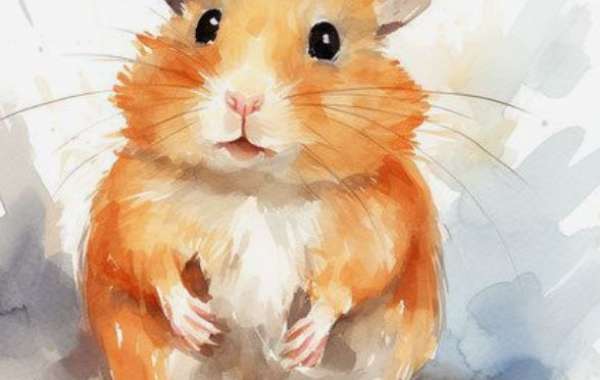Hamsters are adorable pets known for their playful behaviour and tiny, intricate features. One crucial aspect of hamsters' health that often goes unnoticed is their teeth. Monitoring your hamster’s teeth length is essential for ensuring they remain healthy and comfortable. In this blog post, we’ll explore why hamster teeth length matters, how to assess it, and what to do if your hamster’s teeth grow too long.
The Importance of Hamster Teeth Length
Hamster teeth are unique in that they grow continuously throughout their lives. Proper teeth length is crucial for several reasons:
Preventing Dental Issues: Overgrown teeth can lead to serious health problems, including difficulty eating, weight loss, and even pain.
Maintaining Proper Chewing: Hamsters need to chew to wear down their teeth naturally. Correct teeth length ensures they can chew their food effectively and maintain a balanced diet.
Overall Comfort: Properly sized teeth contribute to your hamster’s comfort and overall well-being.
How Hamster Teeth Grow
Hamster teeth grow at a steady rate, and they need regular wear to prevent them from becoming too long. Here’s a brief overview of how hamster teeth grow:
Incisors: Hamsters have four incisors – two on the top and two on the bottom. These are the most visible teeth and are responsible for biting and gnawing.
Molars: Located further back in the mouth, molars help grind food. They are less visible but are crucial for chewing.
How to Assess Hamster Teeth Length
Regularly checking your hamster’s teeth is important for detecting overgrowth early. Here’s how you can assess their teeth length:
Visual Inspection: Gently hold your hamster and look into their mouth. The incisors should be even and not overlapping. They should be about the same length and not extend past the lips.
Behavioural Signs: Pay attention to your hamster’s eating habits. Difficulty chewing or a sudden change in diet can indicate dental issues.
Professional Check-ups: Regular vet visits will help ensure that your hamster’s teeth are properly managed. Your vet can provide professional advice on dental care and address any issues early.
Common Problems with Hamster Teeth
Overgrown teeth can cause various problems for hamsters. Here’s what to watch out for:
Malocclusion: This is a condition where the teeth do not align properly, causing difficulty in chewing and potential pain. It can lead to the upper and lower teeth growing into each other.
Overgrowth: If a hamster’s teeth grow too long, they may cause injury to the gums or mouth. Overgrown teeth can also affect a hamster’s ability to eat properly.
Dental Abscesses: In severe cases, overgrown teeth can lead to infections and abscesses, which require prompt veterinary treatment.
How to Manage Hamster Teeth Length
To prevent and manage overgrown teeth, consider the following tips:
Provide Chewing Opportunities: Offer safe, chewable items like untreated wood blocks or chew toys. This helps wear down the teeth naturally.
Maintain a Balanced Diet: Ensure your hamster has a diet that includes fresh vegetables and high-quality hamster food. A varied diet supports healthy teeth.
Regular Veterinary Care: Schedule regular check-ups with your vet to monitor your hamster’s dental health. Your vet can trim overgrown teeth and provide guidance on maintaining proper dental care.
When to Seek Veterinary Help
If you notice any of the following signs, seek veterinary assistance promptly:
Difficulty Eating: If your hamster is struggling to eat or appears to be losing weight, it may be due to dental issues.
Visible Dental Problems: If you see any signs of overgrowth or misalignment, consult your vet for an evaluation.
Behavioural Changes: Sudden changes in behaviour, such as increased aggression or hiding, may indicate pain or discomfort from dental problems.
Sum UP
Monitoring and managing your hamster’s teeth length is a vital part of their overall care. Regular inspections, providing appropriate chew toys, and maintaining a balanced diet are key to preventing dental issues and ensuring your hamster remains healthy and happy. If you have concerns about your hamster’s teeth, consult your veterinarian for professional advice and treatment.




